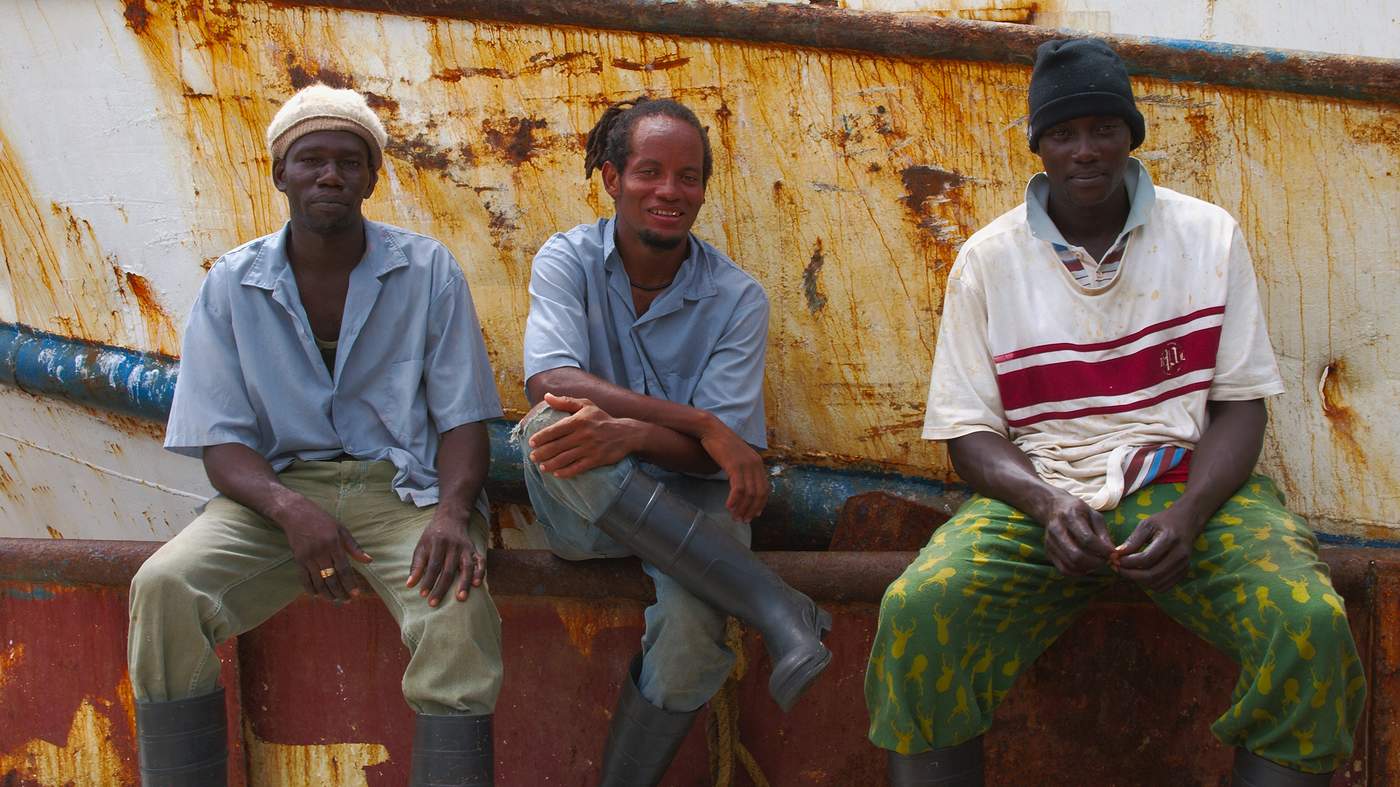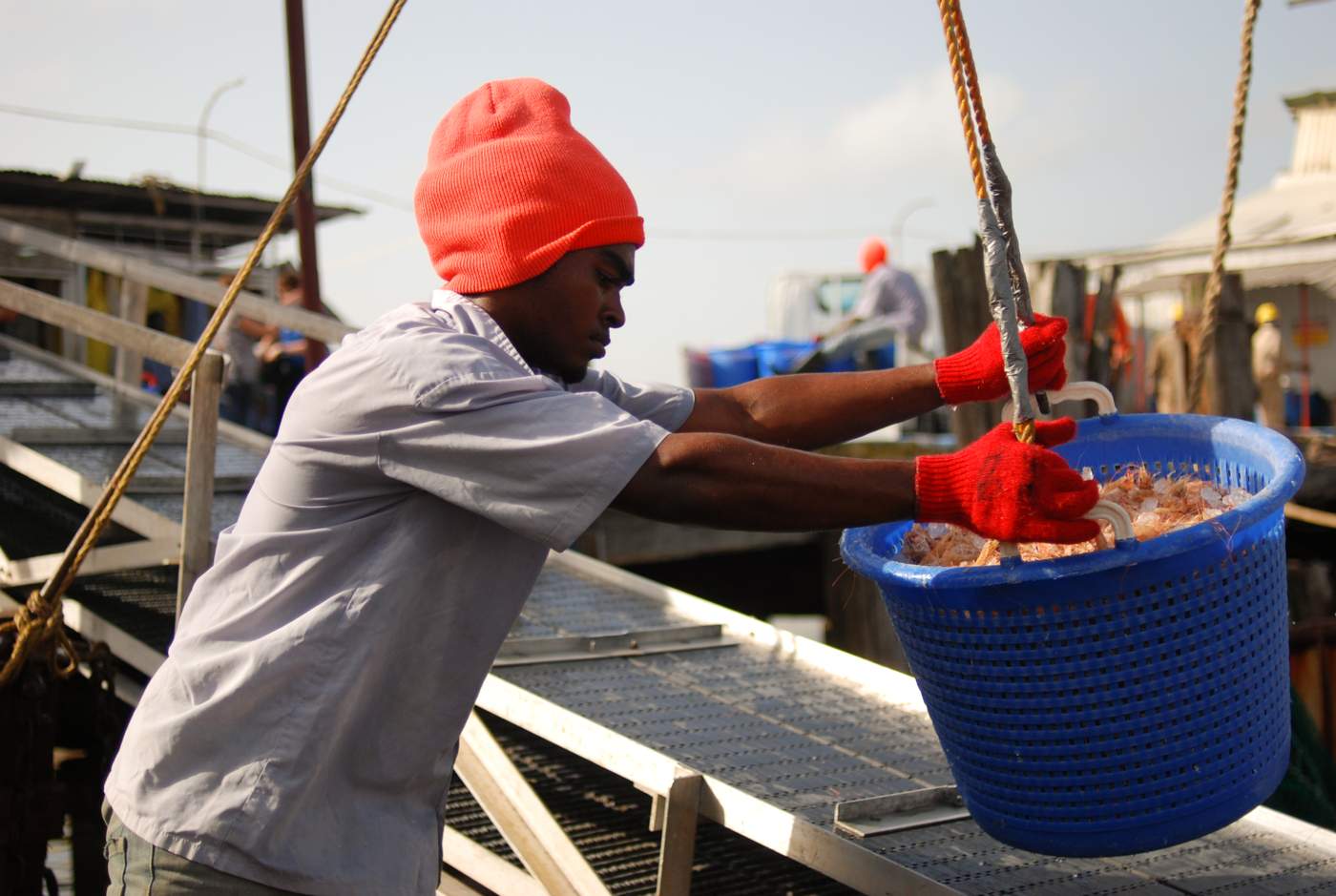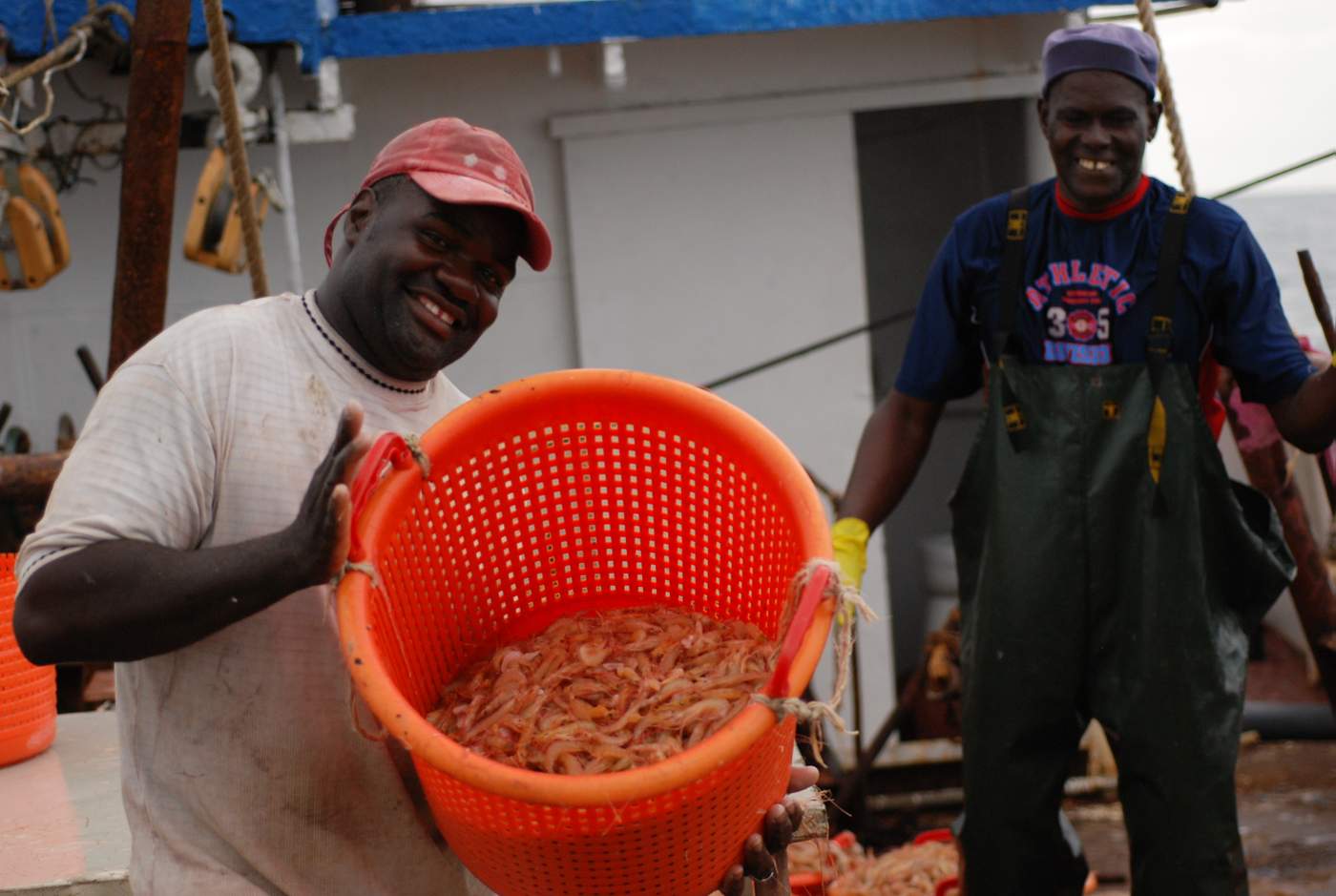On the Northeast shoulder of South America, just north of Brazil, you’ll find a former Dutch colony two thirds of the size of the UK, swathed in dense rainforest. So dense in fact, that the majority of its 500,000-strong population live scattered along its narrow coastal plain. This is Suriname, and you’d be forgiven for not having heard of it before. “Where is Suriname?” is among the top Google searches for the country.
Dip a toe in the sea and you’ll be met not by the azure waters and coral reefs of the Caribbean to the country’s north, but instead by mangrove forests and vast mudflats, fed by the River Amazon's silty outflows. This nutrient-rich inshore habitat provides home to a diverse array of burrowing creatures, one of which has brought together government ministers, NGOs, scientists and a Dutch seafood processor for the very first time.
In the mid-1990s, as an alternative to the traditional catch of Penaeus prawn which was then in decline, fishers began catching Atlantic seabob (Xiphopenaeus kroyeri) a smaller white tropical shrimp, abundant in Suriname’s coastal waters and across the wider Caribbean. Reaching 6cm when mature, it lives closer to shore than other species of shrimp, often in dense aggregations.
“When the fishers get out to seabob fishing grounds, they release a small ‘try net’ to assess the amount of shrimp on the seafloor. They decide if it’s worth it, and only then do they put out the trawls. Because seabob live in such high densities, if you know where to catch them, you can really catch them quite selectively without too much bycatch.”
Suriname quickly became the third largest producer of Atlantic seabob in the world.
A world first for tropical shrimp
The improvements paid off and in 2011, Suriname’s seabob fishery became the first tropical shrimp fishery in the world to achieve MSC certification.
Since becoming certified, the fishery has worked hard to collect further information and improve its operations to meet best practice. It has commissioned research to determine that seabob catch outside the fishery was not having a negative impact on the stock and to confirm that no vulnerable species were regularly being caught as bycatch, and has also minimised bycatch by refining the design of the escape panels it had previously introduced.
“The conditions placed on the fishery acted as an important impetus for a lot of new studies and very positive engagement. Much of the new research into Suriname’s marine environments would not exist without the conditions of certification.”
Over the same period, the Suriname Government invested USD $20 million in enforcement vessels to strengthen its monitoring and surveillance programmes, reaffirming its commitment to sustainable fishing. These collective efforts paid off and the fishery was successfully re-certified in 2016 after meeting all of its original conditions.








